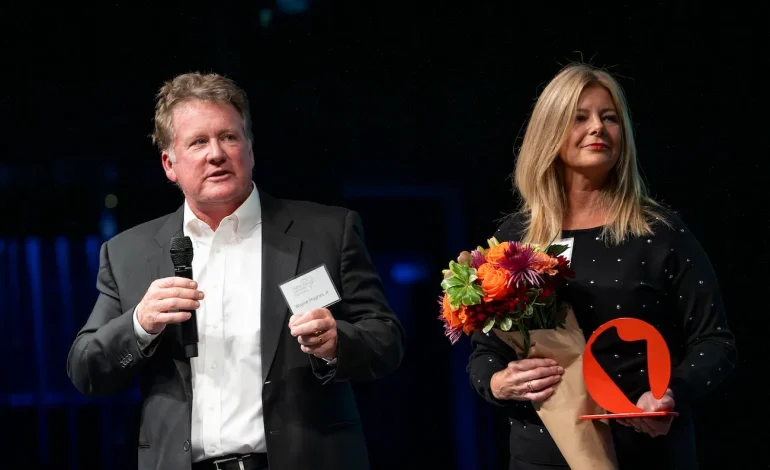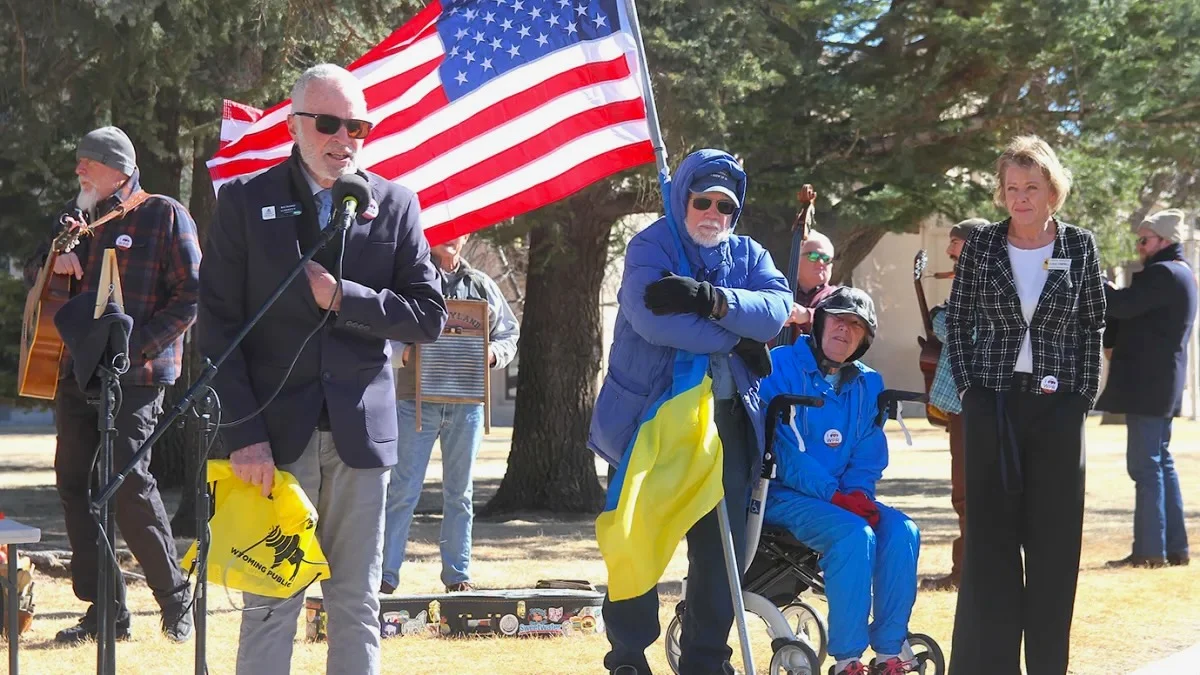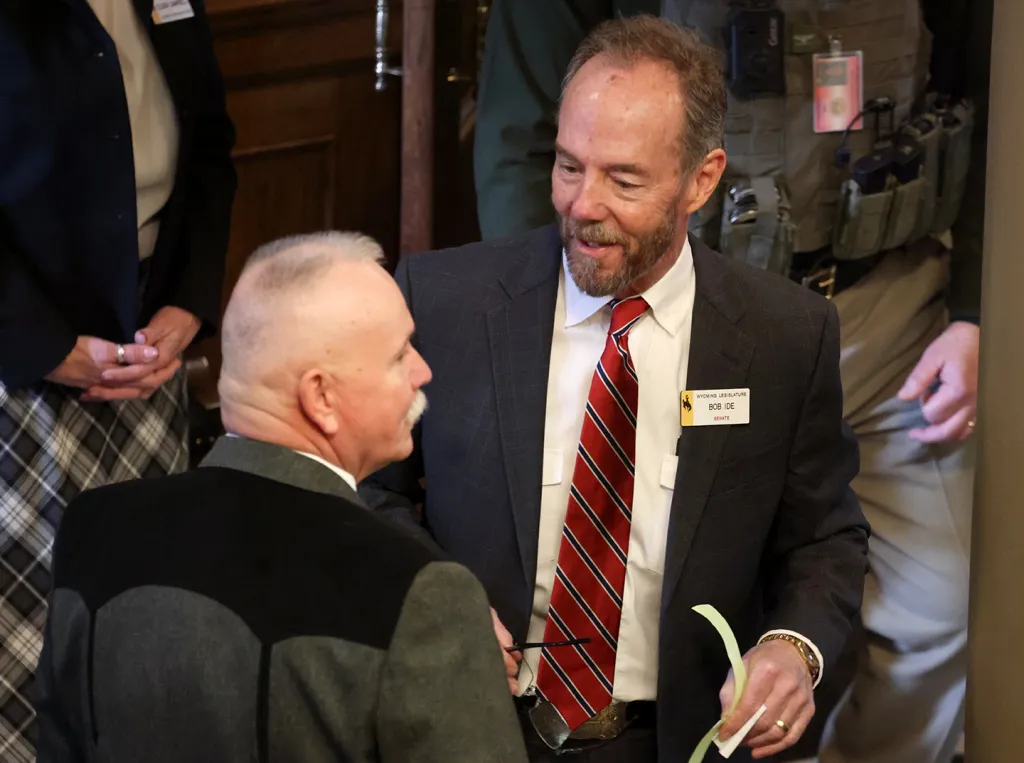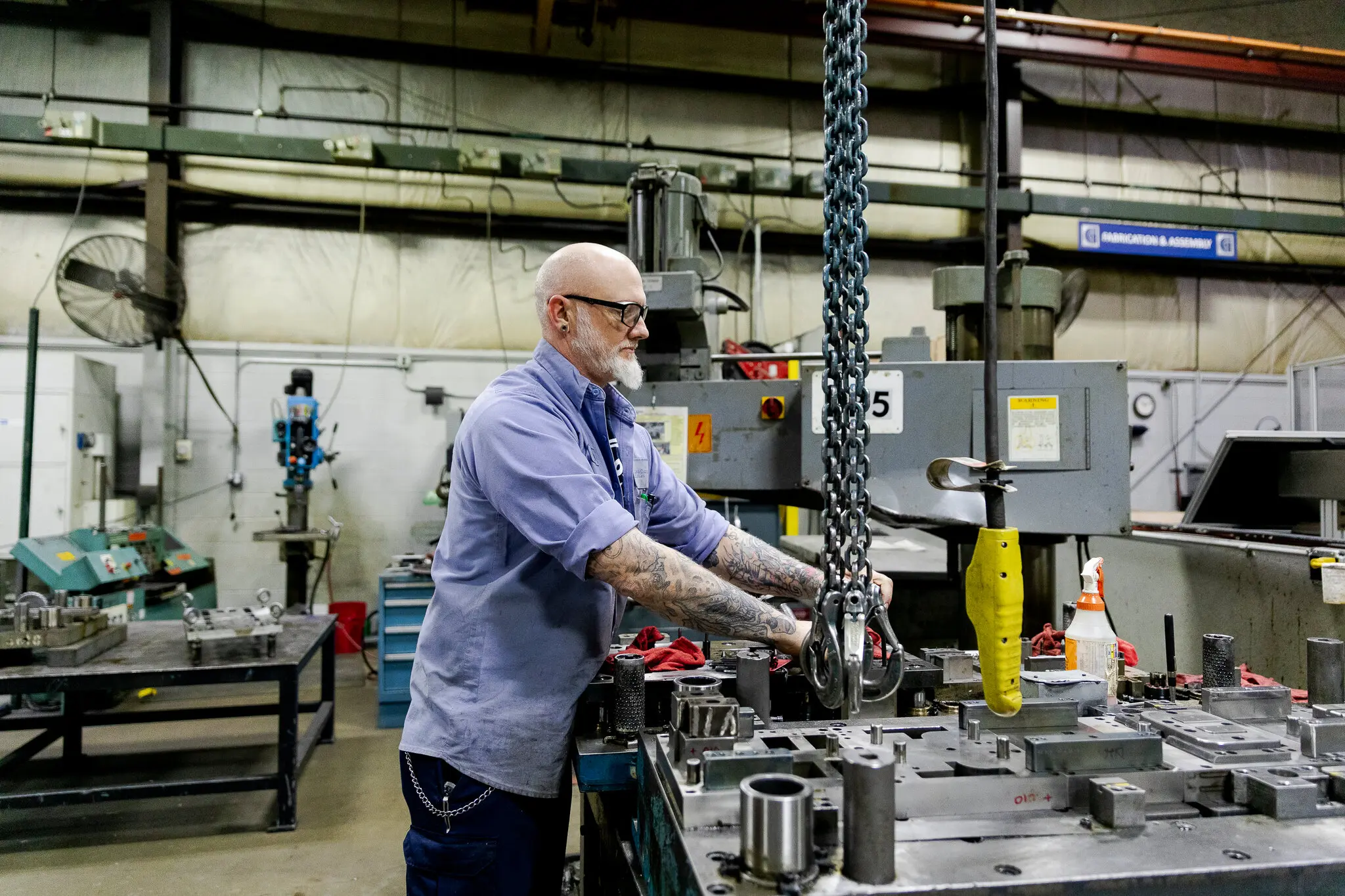The Quiet Power Couple: How a Jackson Hole Billionaire Duo Is Quietly Shaping Wyoming

At Jackson Hole’s big Old Bill’s charity bash last month — balloons, music, and nonprofits lining up to collect checks — one couple’s name kept coming up: B. Wayne Hughes Jr. and Molly Hughes, WyoFile reports.
Some newer residents had never heard of them. Most longtime locals definitely had.
One woman talked about how much they’ve poured into youth programs. Another smiled remembering the family that helped make a local farm stand truly affordable.
“Are there people who haven’t heard of them?” one attendee asked, half-joking, as she rushed by.
Outside Teton County, though, many Wyomingites still don’t know who Wayne and Molly are — and that seems to suit them. The couple rarely gives interviews and tends to avoid the spotlight. They turned down interview requests for this story, saying they prefer to let their work speak for itself.
But their fingerprints are all over modern Wyoming.
If someone in the state:
- Uses a food bank,
- Has a loved one in addiction treatment,
- Watches Wyoming PBS, or
- Reads Cowboy State Daily,
there’s a decent chance they’ve been touched by the Hugheses’ money.
Since moving to Jackson Hole from California eight years ago, the billionaire couple has become one of the most powerful — and quiet — forces in Wyoming’s civic, media and political life.
According to Forbes, Wayne Hughes Jr. and Molly Hughes are worth around $2 billion. Since 2017, their Hughes Charitable Foundation has distributed or pledged about $75 million to Wyoming nonprofits — an enormous figure in a small, rural state where charitable dollars are usually hard to come by outside the wealthy pockets of Jackson.
Their money has gone to:
- Youth homes and services;
- Food banks and hunger initiatives;
- Domestic violence and addiction programs;
- Housing efforts, especially in Teton County;
- Elder care, Indigenous communities, and mental health services.
Nonprofit leaders say their checks don’t just “help” — they can completely change an organization’s trajectory.
And that giving comes at a time when governments in both Cheyenne and Washington, D.C. are cutting back on public services and tax revenues that fund schools, health programs and social supports. In that gap, private philanthropists like the Hugheses increasingly serve as a kind of unofficial social safety net.
At the same time, Wayne Hughes Jr. is also a major political donor and media owner:
- He has given more than $637,000 to Wyoming statehouse candidates and PACs.
- He has spent millions nationally, especially on Republican and Trump-aligned causes.
- He owns Cowboy State Daily, which bills itself as Wyoming’s most-read news outlet.
That combination — big philanthropy, big political checks, and ownership of a prominent media outlet — gives one family an unusually wide reach in a state of fewer than 600,000 people.
To understand Wayne Jr., it helps to know where the money came from.
His father, Bradley Wayne Hughes Sr., grew up the son of an Oklahoma sharecropper who relocated to California during the Dust Bowl. Hughes Sr. tried a handful of different jobs before founding Public Storage in the 1970s — the self-storage company with the bright orange logo. As Forbes once put it, he “built a fortune storing Americans’ excess stuff.”
The elder Hughes also had a habit of giving big money quietly. In 2019, The Los Angeles Times reported that he’d secretly donated almost $400 million to the University of Southern California, his alma mater, without putting his name on buildings.
Wayne Jr., now in his mid-60s, seems to have absorbed that low-profile approach. When reporters requested interviews with him and Molly, the response came not from the couple but from former Wyoming governor and attorney Mike Sullivan, who warned in a letter that too much attention on the Hughes family could pose security risks, especially given their conservative political beliefs.
The Hugheses declined to talk on the record and asked journalists not to share personal details — information reporters say they were already planning to avoid.
In a 2014 Forbes interview, Hughes Jr. described how he became serious about philanthropy after rediscovering his Christian faith in his late 30s and growing disillusioned with trying to drive change solely through politics.
He has described his philanthropic focus as the “impact zone” — borrowing a surfing term for the dangerous place where waves repeatedly crash on a person caught between shore and safety.
For him, that “impact zone” includes people trapped in cycles of:
- Poverty;
- Addiction;
- Housing insecurity;
- Incarceration;
- Trauma and abuse.
“Our philanthropy is focused on supporting the poor, hungry, oppressed, imprisoned, housing insecure, veterans, women and children, and Indigenous communities,” the Hughes Charitable Foundation states.
Molly Hughes — a professional fundraiser with more than 30 years of experience — is seen by many in Wyoming’s nonprofit world as the operational brains behind the foundation. As its executive director since 2018, she’s known as thoughtful, deeply faith-driven and insistent that wealthy donors should give more of their money away.
Even in wealthy Teton County, multiple nonprofit leaders say the Hugheses’ giving stands out for both its scale and flexibility.
In Gillette, YES House CEO Ryan Anderson was staring at a crisis in 2021. The youth emergency services organization was grappling with high inflation, stagnant reimbursement rates, and funding strings that made it hard to simply pay people what they were worth.
To keep his specialized staff — who work with court-ordered youth in residential care — Anderson estimated he needed about $1 million, or roughly 18% of his budget.
Enter the Hughes Charitable Foundation.
Within a few months, the foundation approved a $1 million grant to fund pay raises and retention incentives.
“It was incredibly valuable to us in a time when we really needed it,” Anderson said.
Without the money, he said, the organization would have been forced to cut services or lose critical workers.
Stories like that have piled up across Wyoming. According to public records and interviews:
- From 2017–2021, the Hughes Charitable Foundation gave about $4 million total.
- Over roughly the last four years, annual giving ballooned to around $12 million a year.
- The foundation has supported more than 300 Wyoming nonprofits.
Their top funding areas by dollars: affordable housing, Indigenous communities, and youth services.
They also do statewide system-level work. In 2021, for example, they gave $1 million to the Wyoming Nonprofit Network to create a matching program for WyoGives — an annual online giving day. Each year since, another $1 million has gone out to organizations around the state, with bigger matches directed toward “philanthropy deserts” and high-poverty counties.
Notably, Teton County nonprofits are excluded from that match, on the theory that they already have access to far more local wealth than their peers elsewhere in Wyoming.
Philanthropy is only part of the story. The Hugheses are also reshaping Wyoming’s media landscape.
Cowboy State Daily, now a sprawling digital news outlet with a statewide footprint, started as a conservative-leaning nonprofit with early backing from another Jackson billionaire, Foster Friess, after his unsuccessful 2018 run for governor.
By the end of 2021, though, the outlet was nearly out of money. Editor Jimmy Orr said Cowboy State Daily was “hanging on for dear life” and didn’t “have much time left at all.”
That changed when Wayne Hughes Jr. entered the picture.
In 2021, the Hughes Charitable Foundation gave the outlet a $50,000 grant, contingent on strategy talks with its leadership. Then, in February 2022, Hughes bought Cowboy State Daily’s assets outright, dissolving the nonprofit and replacing it with a for-profit LLC.
The announcement on the website described the buyer as a “Wyoming businessman and philanthropist.” It didn’t mention his long history as a major conservative donor.
Today, Cowboy State Daily has:
- More than 100,000 newsletter subscribers, according to Orr;
- A growing team of reporters;
- A statewide billboard campaign and media presence;
- Radio and video shows syndicated in parts of Wyoming.
Orr and early contributor Bill Sniffin say Hughes Jr. has not tried to steer coverage or dictate editorial decisions.
“He lets us run it,” Orr said. “He’s hands off.”
Still, media scholars say anytime a billionaire with strong political preferences owns a news outlet, it raises obvious questions about influence — especially in a small state where that outlet increasingly dominates online news.
And the Hugheses’ media giving doesn’t stop there. In August, Wyoming PBS announced that the Hughes Charitable Foundation had awarded it $500,000 to help offset funding shortfalls caused by federal cuts during the Trump years.
Alongside philanthropy and media, Wayne Hughes Jr. is also a major campaign donor, both in Wyoming and nationwide.
Some highlights:
- Nationally, he has made at least 180 federal contributions totaling about $2.3 million since 1990.
- He gave $1 million to Donald Trump’s 2017 inauguration and another $1 million for Trump’s 2025 inauguration.
- He contributed at least $505,600 to Trump’s 2020 campaign and related committees.
- He has given large amounts to Republican committees trying to hold or win congressional majorities.
In a 2016 statement after Trump’s first win, Hughes Jr. called the election “a middle-class repudiation of Beltway establishment politics” and said it was time to abandon old left-right thinking.
In Wyoming, he’s written checks that matter a lot in a state where many legislative races are decided on budgets smaller than a typical big-city school board contest.
Since 2020, Hughes Jr. has given more than $637,000 to Wyoming legislative candidates and PACs, according to state records. Many of those donations have landed on the side of the more traditional “Wyoming Caucus” Republicans, not the hard-right Wyoming Freedom Caucus.
He’s also given heavily to Wyoming Hope, a PAC that helped defend funding for Wyoming’s suicide prevention hotline — a program some Freedom Caucus members wanted to shift entirely to churches and charities.
Former Senate President Ogden Driskill, who received support from Hughes, said he sees the couple as a stabilizing force against deeper swings to the far right.
“I don’t think Wayne and Molly tried to change Wyoming’s culture or community,” Driskill said. “They tried to support what had been there in the past.”
Not everyone agrees, of course. The group Honor Wyoming, aligned with hard-right Republicans, has criticized Cowboy State Daily and accused the outlet of favoring politicians funded by its owner. They’ve called for disclaimers on stories involving any candidates who receive Hughes money.
Orr dismisses that idea, insisting coverage is independent and that Hughes Jr. doesn’t interfere.
For many who’ve met the couple, the most surprising thing isn’t their wealth — it’s how unassuming they seem.
Former Teton County GOP chair Mary Martin remembers meeting them at a local Republicans’ Patriots Dinner.
“They were just like your friend next door,” she said. “Very amenable, affable, pleasant. Just like a neighbor.”
Whether it’s the neighbor-next-door version or the billionaire-donor version that people see, there’s little doubt Wayne and Molly Hughes have become central players in modern Wyoming:
- Their foundation money fills gaps in social services and community programs.
- Their media ownership helps shape what many residents read and watch.
- Their political checks influence who gets heard in Cheyenne and beyond.
And they’re doing it all, as much as possible, without the fanfare that usually accompanies that kind of power.









The latest news in your social feeds
Subscribe to our social media platforms to stay tuned